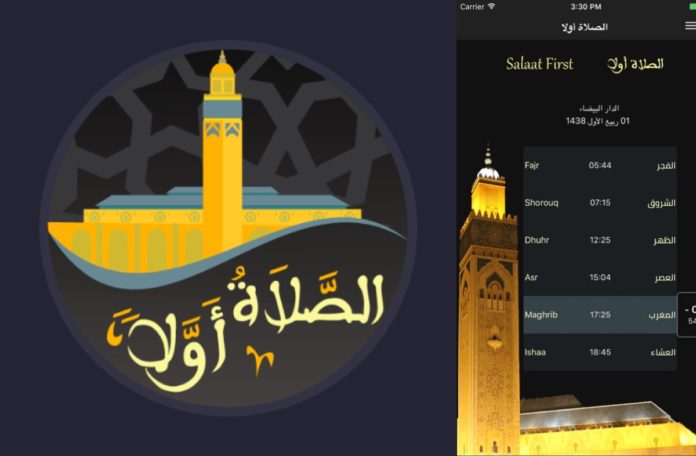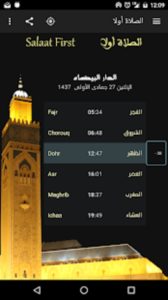
The Muslim prayer app Salaat First (Prayer Times) has been selling user data to a company affiliated with U.S. law enforcement, according to an investigation by VICE.
The investigation concluded that Salaat First (Prayer Times), which has been downloaded over 10 million times on Android, gave a French company called Predicio access to its user data. Predicio has ties to U.S. government contractor Venntel which has worked for U.S. Immigration and Customs Enforcement, the U.S. Customs and Border Protection and the FBI.
Among the data Salaat First (Prater Times) sold were phones models, operating systems, IP addresses, locations and timestamps of its users.
The app was tested by VICE and was also found to be violating Google’s Play Store policies as it did not have an in-app privacy policy. It tells users: “This app uses your location to calculate prayer times, Qibla direction and show nearby mosques… And as stated in our privacy policy page, we may also share anonymized location data with trusted third party services for ads and to improve our services.” But it failed to mention that the data was being sold and was not only used for targeted ads.
Hicham Boushaba, the Moroccan developer behind the app, responded to the allegations claiming that he did not know that the data was being “misused” by the French company. According to Mr Boushaba, Predicio’s software package was implemented last March but the contract between the two parties has since been terminated due to privacy concerns. He further claimed that it only affected users who downloaded the app in the UK, Germany, France or Italy.
“When I accepted collaborating with Predicio, the agreement and the idea I had was that the collected data will be totally anonymized, and will be used for ads personalisation and/or products improvement, same as any other data company does. But when I read the report about X-Mode [a company mentioned along with Venntel by NRK and Motherboard] I was afraid the data may be misused by either Predicio or its partners, so decided to terminate the agreement”, he said.
Subscribe to our newsletter and stay updated on the latest news and updates from around the Muslim world!
Meanwhile, Predicio said: “Predicio does not support any governmental, commercial, or private use cases that aim to use business intelligence data to identify ethnic, religious, or political groups for human tracking or people identification of any sort. We do not tolerate the abuse of our solutions for the use cases that do not follow our global moral, social, and ethical code of conduct”.
Commenting on the news, Nihad Awad, the director of the Council on American-Islamic Relations, said: “In light of these latest revelations, the owners of all major Muslim applications should thoroughly investigate how their companies handle user data. The companies should publicly acknowledge any identified sale of user data that could have been obtained by government entities, and then take transparent steps to ensure that it never happens again.
“Government agencies must immediately stop acquiring user data from popular Muslim digital applications to surveil, spy on or otherwise target the Muslim community in the United States, Europe and elsewhere. Congress should also launch a public inquiry in order to fully account for the past use of such data.”
Salaat First (Prayer Times) is not the only app targeted towards Muslims that have been caught potentially misusing its users’ data. Last November similar allegations against Muslim Pro – an app with over 98 million downloads – were reported.
Muslim Pro subsequently issued a statement denying any wrongdoing and said it had cut ties with all its data partners.






















